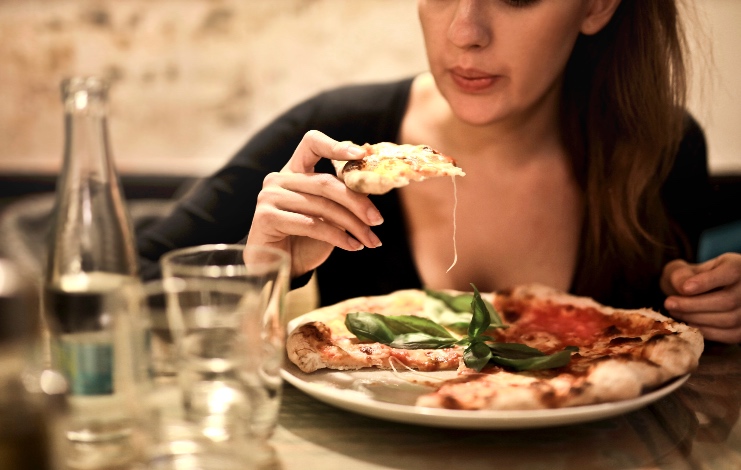By Yasmine Dawood
Emotional eating is a mystery to some of us. Eating is essential for our physical existence, but basing it on the emotional state could turn out to be harmful to our health and existence. Emotions are based on thoughts, and not all of us know how to control these thoughts, and that’s okay if it is not affecting them negatively. However, when it comes to harming our bodies, that’s where we need to stop and be aware of what emotional eating means, its triggers, and how to stop it.
Emotional and physical eating
Emotional and physical eating are different on so many levels; in order to distinguish between both, you need to know the differences between them before jumping to conclusions and choosing which kind of eater you are, if not both.
Firstly, Emotional hunger does not come gradually like physical hunger, it occurs suddenly, which means that you suddenly feel hungry and feel the need to eat without any prior indications.
Secondly, emotional hunger does not wait or become satisfied when you’re full like physical hunger, it makes you feel the urge to satisfy it instantly and does not end when you feel that you’re full.

Thirdly, emotional hunger can make you crave certain foods, while physical hunger needs the kind of food required to re-energize. In other terms, healthy food sounds good when you’re physically eating but it does not work with emotional hunger.
Lastly, emotional hunger is usually followed by guilt, while physical hunger makes you feel the total opposite since you know you’re doing it to take care of your body and give it what it needs, you also need to learn how to control your emotions.
The triggers
“One of the greatest pleasures of my life has been that I have never stopped learning about Good Cooking and Good Food,” Edna Lewis, 2013.
“Good” could have so many meanings, but it definitely does not include unhealthy food as one of the greatest pleasures in life, since all it does is worsen our health.
Emotional eating is triggered by our emotion state, whether positive or negative. If you are an emotional eater, you may find yourself eating when you’re under stress, bored, feeling lonely, and you may also use food as a reward. Some people also get triggered by body hate, so they do it as a form of self-punishment.
How to quit it
Find alternatives: Replace it with another habit, putting in mind that shopping or any addictive behavior is not the answer. For example; you may try to replace it by reading, talking it out with someone, cooking a healthy snack, knitting, walking, creating DIYS, working out, etc… You can replace it with anything that meets your interests, benefits you, and helps with releasing emotions without harming yourself.
Get creative: Sometimes it’s helpful to make healthy look junky. Since emotional eating requires a specific type of food, which is mainly junk food, you’ll have to get creative to maintain your weight. If you do your research, you’ll find that almost every meal can be cooked in a healthy way. You’ll just need to add ‘healthy’ to whatever you’re craving in your google search. Cooking also helps with emotional eating since it gives you time to rethink and decide if you’re really hungry or not.
No temptations: Quitting emotional eating may be really hard, if not impossible, with a bag of chips next to your bed. You’ll need to remove all temptations as this may help you with the first steps to quit emotional eating.

Food diary: Writing down what you eat on a daily basis and preferably after every meal plays a very important role in quitting emotional eating. Keeping track of your daily intake will help you maintain your weight and raise awareness towards your feelings, and to deal with them rather than using food to do the job.
Support group: It doesn’t have to be a group, it’s enough to have one person to share your progress with and to help you stay on track. Having someone who can motivate and encourage you plays a very important role in quitting any bad habit.
I would also like to recommend to those of you who tried these tips and still feel that something is missing, to visit a life coach or therapist. The reasons behind emotional eating for every person vary, and that’s why you may need a professional to help you understand and deal with these reasons and emotions in a way that also fits your outcome.



